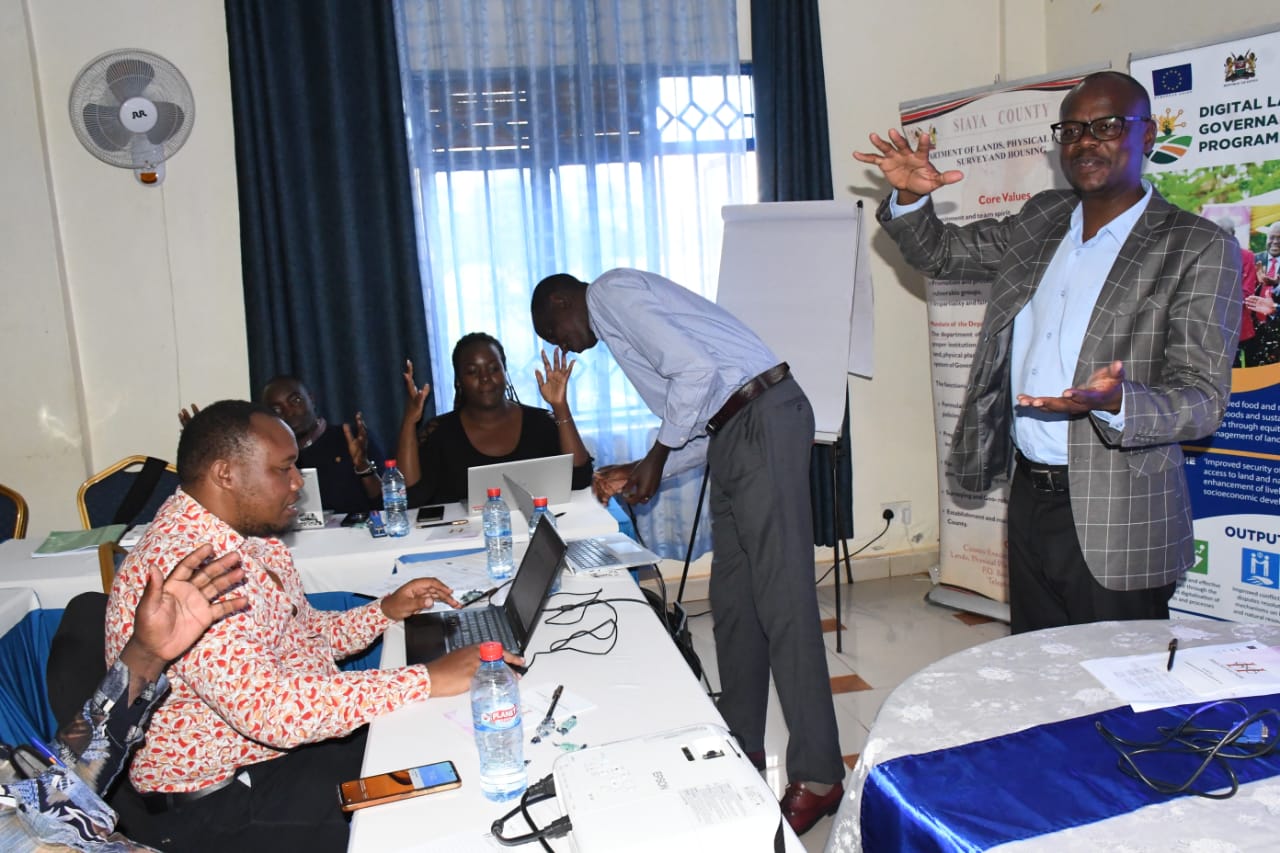Photos | Diblo, Siaya Governor’s Press Unit
According to Lands Executive Maurice Orege, he today held a meeting with technocrats from sectors that drive Siaya’s development to come up with a comprehensive development land policy and land management policy.
“We are concerned over poor planning of urban towns so in development control policy, we are looking at management and efficiency in terms of approval processes and increased revenue,” said Orege.
Orege was addressing lands stakeholders in a meeting that attracted National Land Commission, officials from state department of land and physical planning, FAO and COG representatives.
He noted that Siaya county was rapidly growing and it was facing numerous challenges hence the need for development to be controlled through effective planning.
“Owing to the gravity of the matter, the stakeholders have held a two-day meeting to craft policies that would ensure effective planning,” said Orege adding that the need for effective planning, sustainable infrastructure and controlled development is paramount.
Orege said that the two policies aim to provide framework that would guide the growth of towns in Siaya County and development in a suitable and orderly manner.
“Through the sound policies we are coming up with, we shall assist the selected urban towns come up with planned development. The policies will address the crucial aspects such as land use regulations, zoning requirements, building codes, environmental considerations, and public space planning’s.
“The stakeholder’s expertise and experience in urban planning and policy formulation are instrumental in creating a comprehensive set of guidelines aligned with vision of NIUPLAN.”
Orege further said that the formulation of development control policy will provide a solid foundation for implementing NIUPLAN effectively. The policies will ensure sustainable growth, improved infrastructure and enhance sustainable life for Siaya residents.
Orege added once the policy is formulated, and gets approved by the public through the public participation forums and its bill sails through the assemble then assented into law, any person doing development shall seek approval from the county government.
“The approval must be done by the County Executive Committee member in charge of lands,” said Orege.
The County Director Physical land use planning Maurice Ochieng echoed Orege’s sentiments saying through the policies, there will be efficiency in terms of approval of processes and revenue collection.
“We have a challenge of mushrooming developments within the county (urban area where development control instruments do not exist. Certain areas where plans exist, we have faced a challenge of enforcement,” said Ochieng.
Ochieng said the county government is looking at ways of enhancing revenue collections and development approval is one of the revenue streams in Siaya.
On lands management, FAO seeks to modernize the land information system to curb shoddy deals that has seen a single plot sold to five clients.
“The road to reforms in the land sector is modernization. This will put to end corrupt deals where owners of plots/lands sell off the same property to five different people,”
It will also prevent developers from establishing structures on none-designated areas.
Once the system is digitized, even revenues would be paid directly to the banks hence boosting collections going to the exchequer.
National Assistant Director of Physical Planning Arthur Mbatia has called on Counties to establish County lands liaison Committee to respond to cases that come as a result of CECM for lands declining to approve development plans.
“These committees have not been established in the majority of counties and those with it do not fund it yet the law directs counties to do so. Going forward, for the sake of independence of the committees, we shall in the next financial year have them funded by the National government,” said Mbatia.
The committee is to be chaired by the head of the liaison committee who should be an advocate of the High Court of Kenya capable of interpreting administrative and judicial tenets to arrive at a rightful decision by the committee.
“We should also have in the committee an architect who is practicing and registered, a surveyor, planner and NLC official,” said Mbatia.
